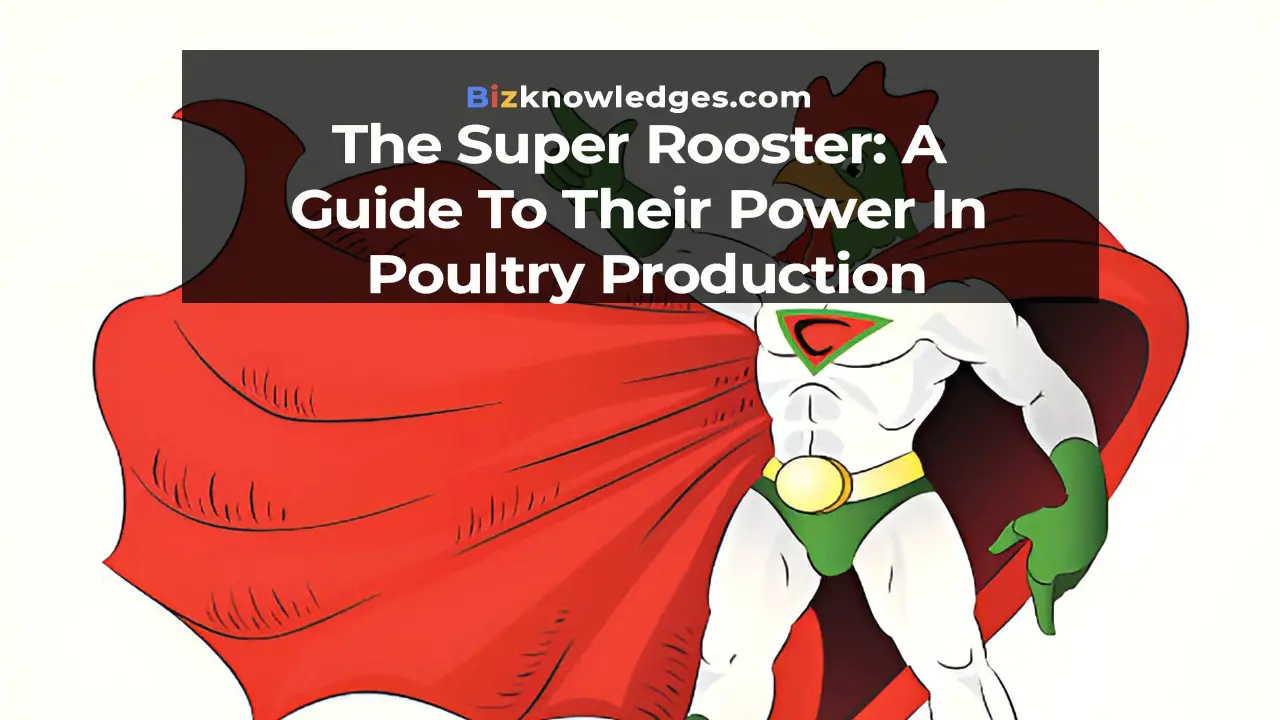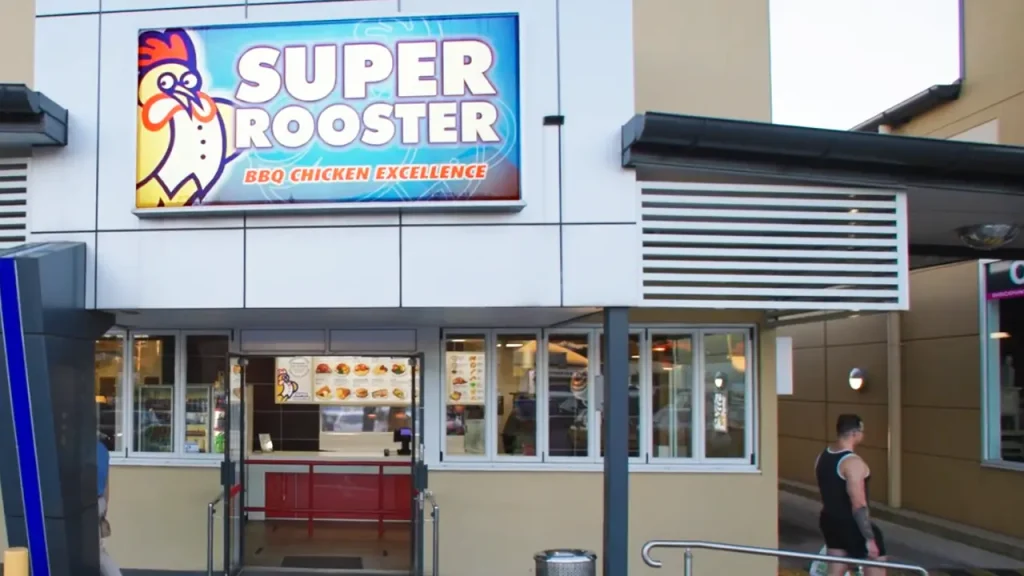The Super Rooster: A Guide to Their Power in Poultry Production

In the world of poultry production, few figures stand as proudly as the Super Rooster. More than just a flock leader, this bird represents the pinnacle of strength, vitality, and genetic excellence. For generations, farmers and breeders have leaned on these exceptional roosters to transform their operations—enhancing productivity, ensuring healthier flocks, and bringing resilience to every corner of the coop. This guide explores the unmatched power of the Super Rooster, from their impact on breeding quality to their role in shaping sustainable poultry farming.
What Is a Super Rooster?
Once upon a time in a far-flung village, the term “Super Rooster” might have conjured images of a heroic bird, cape and all, ruling the roost with an iron beak. In reality, though, a Super Rooster isn’t about capes or superpowers—it’s about breeding and prowess.
A Super Rooster is a breed apart, quite literally. This term is often used to describe a rooster that excels in certain desirable characteristics, whether it’s for show quality, breeding capabilities, or even certain competitive aspects in regions where rooster competitions are a cultural tradition. These birds are the result of meticulous selection and breeding, embodying the best traits that poultry enthusiasts and farmers covet: vibrant plumage, robust health, and remarkable vitality.

The allure of the Super Rooster lies not just in its physical attributes but also in its behavior. These birds are known for their dominant presence in the coop, often displaying high levels of confidence and leadership among the flock. This makes them particularly valuable in breeding programs where strong genetic traits are prized and propagated for future generations.
The Role of Super Roosters in Agriculture and Farming
Super Roosters are more than just a feathered spectacle; they play a pivotal role in the dynamics of agricultural and farming communities. These birds are like the unsung heroes of the poultry world, significantly influencing the productivity and sustainability of farms.
In the world of agriculture, Super Roosters contribute to genetic diversity, which is a critical component in livestock resilience and health. By breeding these robust and superior males with hens, farmers can ensure the next generation of chickens is healthier, more resilient to disease, and more capable of thriving under various environmental conditions. This genetic strength translates to fewer losses from illness, and higher productivity in terms of egg production, and meat quality, which is a big plus for farmers looking to sustain their operations and reduce overhead costs.
Moreover, the presence of a Super Rooster can greatly affect the social structure within the coop. These roosters often take on a leadership role, maintaining order and even preventing bullying among hens. This harmony in the coop can lead to higher egg production rates, as stress levels among the hens are minimized, allowing them to perform their best.
For communities that hold poultry competitions, Super Roosters are often the stars of the show, attracting visitors and bringing in additional revenue through event hosting and tourism. This not only celebrates the cultural significance of these animals but also supports local economies.
In a nutshell, the role of Super Roosters in agriculture goes beyond their impressive feathers and commanding crows. They are cornerstone contributors to the health, efficiency, and even economic viability of farms where they reign. Next, we’ll explore how these top-tier birds are bred to meet the high expectations placed upon them.
The Economic Impact of Super Roosters
In the tapestry of rural economies, Super Roosters are not just vibrant threads but also crucial ones that weave significant economic benefits into the communities that raise them. The economic impact of these exceptional birds stretches from local markets to international shores, influencing not only the direct revenues from poultry products but also the broader agricultural economy.
Firstly, the breeding of Super Roosters is a lucrative niche within the poultry industry. Breeders who specialize in these high-quality birds can command premium prices for both the roosters themselves and their offspring. Because these birds possess superior traits, they are often in high demand among farmers who want to enhance their own flocks, hobbyists looking for show birds, and even culinary experts seeking high-quality poultry for gourmet dishes.
Beyond sales, Super Roosters also play a role in enhancing the sustainability of poultry farming. By improving flock genetics, these roosters ensure that fewer resources are wasted on unproductive or sickly chickens. This efficiency boosts farm profitability and can lead to lower prices for consumers, making poultry products more accessible and increasing consumption.
Moreover, events centered around Super Roosters, such as shows and competitions, can be significant local attractions, drawing visitors from various locales. These events help stimulate local economies by increasing spending on accommodations, superfoods, and other services. The prestige associated with owning or breeding a winning Super Rooster can also translate into branding opportunities for farms, further enhancing their economic standing within the agricultural community.
Lastly, the international trade of these prized birds and their eggs can be a source of foreign exchange, especially in countries renowned for their high-quality breeds. This not only elevates the status of the local farming practices but also contributes to the national economy.
Who is the Owner of Super Rooster?
When you hear “Super Rooster,” it might sound like the name of a single famous bird or a particular brand, but it’s actually a term that can apply to any rooster exhibiting exceptional traits. Therefore, the ownership of a Super Rooster can vary widely, ranging from small family farms to specialized breeders and large agricultural enterprises.
Small-scale farmers often take immense pride in raising a Super Rooster, as it can significantly boost the reputation of their farm within local and sometimes even national circles. These farmers might use their Super Roosters to improve the genetic stock of their flocks, enhance the overall health and productivity of their birds, and attract attention at agricultural shows.
On the other hand, specialized breeders focus intensively on developing and maintaining high-quality strains of poultry. For them, owning a Super Rooster is part of a strategic business model that involves careful breeding practices, meticulous record-keeping, and a deep understanding of genetics. These breeders might operate on a larger scale, selling their prized roosters and eggs across borders.

The History Behind Super Rooster
The legacy of the Super Rooster stretches back centuries, rooted in cultures that have long revered the rooster not just as a farm animal but as a symbol of strength, resilience, and, in some traditions, even spiritual significance. Historically, roosters have held a special place in various societies, from their role as protectors of the flock to their crowing at dawn, which, in many cultures, symbolized the arrival of light and hope.
The origins of what we now call a “Super Rooster” can be traced to the ancient practices of selective breeding. Farmers and breeders noticed early on that certain roosters were more robust, had brighter plumage, or displayed impressive levels of vigor and dominance. These roosters were often selected to pass on their desirable traits, leading to stronger and more resilient poultry over generations. In some regions, especially across Asia and Europe, rooster breeding became an art form, with breeders taking pride in developing distinct strains known for particular attributes.
Conclusion
The Super Rooster plays an undeniable role in poultry production, offering genetic strength, flock leadership, and economic value. From their historical significance to their role in modern agriculture, these remarkable birds bring resilience and productivity to any operation. By understanding their breeding, economic impact, and place in agriculture, we can appreciate how Super Roosters elevate poultry farming to new heights.
